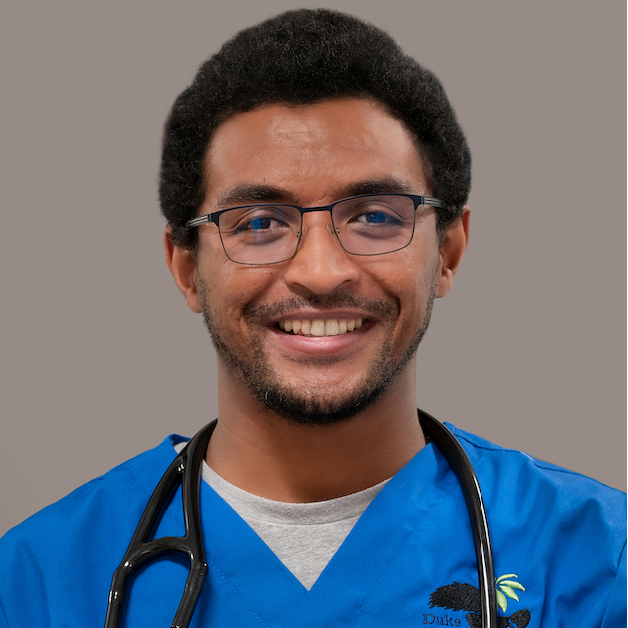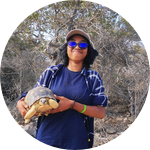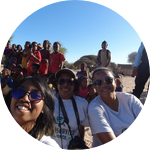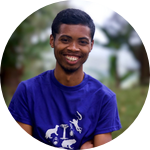About This Project
Madagascar’s tortoises face population declines due to human activities, including illegal trade. A potential health threat is antimicrobial resistance (AMR) genes in tortoises, which hinder treatment and signal environmental contamination. This study screens AMR genes in confiscated and protected tortoises to assess exposure differences. Findings will guide preventive measures to limit AMR spread at the wildlife-human interface, aiding conservation efforts for Madagascar’s endangered tortoises.
Ask the Scientists
Join The DiscussionWhat is the context of this research?
Antibiotic-resistant bacteria have been detected in various tortoise species. Madagascar’s endemic tortoises, including the radiated tortoise (Astrochelys radiata) and spider tortoise (Pyxis arachnoides), are critically threatened by illegal pet trade. Trafficked wildlife including tortoises often endure poor conditions and overcrowding, increasing their risk of carrying AMR pathogens. AMR is a growing global health concern, particularly at the wildlife-human interface, where resistant bacteria can spread between humans, domestic animals, and wildlife. However, little is known about AMR gene in Madagascar’s tortoises, especially those confiscated from the illegal trade. This study will compare AMR gene presence in trafficked tortoises and those in protected areas. Findings will improve understanding of how illegal trade impacts wildlife health and help develop conservation strategies to reduce disease risks.
What is the significance of this project?
Even though antimicrobial resistance is a global health concern, and wildlife play crucial role as reservoirs of AMR genes, information on AMR in Madagascar’s endangered tortoises remains severely limited. Interaction between wildlife and human increase the risk of bacterial transmission, including the spread of resistant strains. A larger dataset encompassing tortoises from both illegal trade and protected areas is needed to determine if AMR patterns differ based on exposure to human activity. This research will provide crucial insights into the role of illegal wildlife trade in AMR transmission, with significant implications for wildlife rehabilitation, conservation efforts, and public health. Study findings will inform conservationists, veterinarians, and policymakers, raising awareness of the hidden health risks associated with the illegal tortoise trade and guiding future mitigation strategies.
What are the goals of the project?
The goal of this project is to investigate the impact of illegal trade on antimicrobial resistance (AMR) in endangered tortoises in Madagascar by comparing the presence of AMR genes in trafficked tortoises with those in protected populations. So far we have been extracted DNA from 60 radiated and 20 spider tortoises in protected population and collected swabs samples from 50 trafficked radiated and 30 spider tortoises. To achive the goal, we will extract DNA from these 80 trafficked tortoises and we will use PCR analysis to detect beta-lactamase, carbapenem, and tretracycline resistance genes in the both populations. This study will begin in June 2025. By identifying patterns of AMR in these tortoises, we can assess the role of illegal trade in spreading AMR genes. The findings will contribute to wildlife conservation efforts and public health strategies, highlighting the need for stricter biosecurity measures and improved management of confiscated animals.
Budget
The majority of the funding ($ 4,240) will be allocated towards sample analysis, including: DNA extraction from 80 swabs samples ($8/sample), PCR analysis in order to detect beta-lactamase resitance gene ($7.5/sample), PCR analysis to detect colistin resistance gene in 160 samples ($7.5/sample), and PCR analysis to detect tetracycline resistance gene in 160 samples ($7.5/sample).
$1000 in funding will be allocated for journal publication at Journal of Wildlife Disease.
Endorsed by
 Project Timeline
Project Timeline
Our team have been collected swabs samples from 160 tortoises and performed DNA extraction from 80 samples from them. We will start this project early June 2025 by extraction DNA from the rest of the swabs samples (80 swabs), followed by PCR analysis for all 160 samples in order to detect beta-lactamase, carbapenem, and tetracycline resistance genes. The project will be completed with an article publication at a peer-reviwed journal by December 31st, 2025.
Feb 28, 2025
Project Launched
Mar 10, 2025
Project Launched
Jun 15, 2025
Complete DNA extraction of swabs samples from 80 trafficked tortoises
Jul 31, 2025
Complete PCR analysis to detect Beta-lactamase, Carbapenem, and Tetracycline resistance genes in 160 samples
Dec 31, 2025
Writing article and submission in peer-reviewed journal
Meet the Team
Affiliates
Team Bio
Our team is dedicated to wildlife health and conservation, with a strong focus on understanding zoonotic diseases and antimicrobial resistance in Madagascar's unique fauna. We investigate the health of lemurs, tortoises, and carnivores, examining the transmission of pathogens at the human-wildlife interface. Through advanced molecular techniques, we aim to provide insights that inform conservation and public health strategies, ensuring the well-being of both wildlife and local communities.
Santatra Randrianarisoa
I am a wildlife veterinarian passionate about One Health, zoonotic infectious diseases, and antimicrobial resistance, particularly in lemurs, tortoises, and carnivores in Madagascar. I earned my veterinary degree from the University of Antananarivo in 2022 and have since dedicated my career to studying wildlife health and its intersection with human and environmental health.
Currently, I serve as a veterinarian and Lab Manager at Mahaliana Labs, a research and training center in Madagascar. In this role, I lead projects investigating zoonotic pathogens such as Leptospira in both wild and peridomestic animals at the human-wildlife interface. My research applies advanced molecular techniques, including DNA extraction and PCR analysis, to better understand disease transmission dynamics and inform conservation and public health strategies.
Beyond research, I am also a lecturer on animal infectious diseases and zoonoses at Madagascar’s veterinary school. This position allows me to share my expertise with aspiring veterinarians and emphasize the importance of interdisciplinary approaches in wildlife conservation and disease ecology.
My experiences in wildlife disease research and laboratory diagnostics have strengthened my commitment to pursuing a PhD focused on One Health, zoonotic pathogen transmission, and microbiome dynamics in Madagascar’s unique wildlife. I aim to contribute to global efforts in wildlife disease surveillance and antimicrobial resistance mitigation, ensuring better health outcomes for both animals and human communities.
If you would like to learn more about my work, please visit my website at https://santatra.owlstown.net/ and follow me on Twitter @SantatraRandri2.
Mitia Andrianantenaina
I am a final-year veterinary student at the Faculty of Medicine, University of Antananarivo, interested about wildlife health and biodiversity conservation in Madagascar.
Currently, I am an intern at Turtle Survival Alliance, where we provide veterinary care for confiscated tortoises, support conservation and reintroduction programs, and collaborate on research while ensuring compliance with medical and regulatory standards.
At the same time, I lead Environmental and Outreach by Key Youth known as "EOKY", raising public awareness about Madagascar’s biodiversity conservation. EOKY was created to bridge the gap between scientific knowledge and public engagement, making conservation accessible and interactive for all. Through education and community involvement, we aim to inspire action to protect Madagascar’s unique wildlife.
I am also working on my thesis to obtain my DVM (Doctor of Veterinary Medicine) degree, titled Health Assessment of Confiscated Radiated Tortoises for Their Reintroduction into the Wild, as part of my internship with Turtle Survival Alliance.
Tsanta Fiderana Rakotonanahary
I am a passionate Wildlife Veterinarian from Madagascar. I am currently the Head of Veterinary Department at Turtle Survival Alliance. We are working to save all criticality endangered terrestrial tortoises of Madagascar such as the Ploughshares tortoises, Radiated tortoises, Spider tortoises and Flat-tailed tortoises. My job is to ensure a highest standard care of the confiscated Malagasy tortoises at TSA facilities and doing the health assessment of these tortoises prior reintroduction
Olivier Rasolofoniaina
I am a wildlife veterinarian at Mahaliana Labs a research and training center in Madagascar, my work is dedicated to understanding disease ecology and promoting wildlife health. I focus on the intricate connections between wildlife, domestic animals, and human populations, with the goal of advancing both conservation and public health efforts.
My role involves screening for zoonotic diseases by collecting and analyzing samples from wild animals, domestic animals, and rodents. This includes fieldwork to capture and examine animals, meticulous sample processing, and the application of advanced molecular techniques such as PCR analysis. Driven by a strong commitment to One Health principles, I aim to deepen our understanding of disease transmission dynamics and support evidence-based strategies for biodiversity conservation and public health protection.
Project Backers
- 0Backers
- 0%Funded
- $0Total Donations
- $0Average Donation




